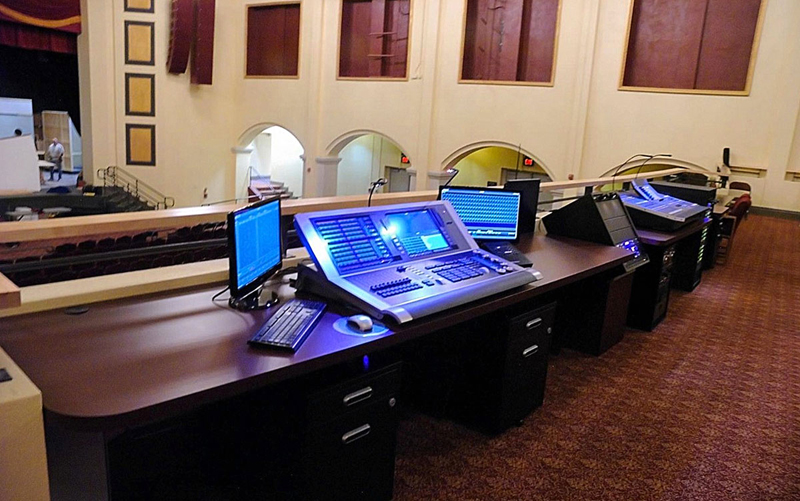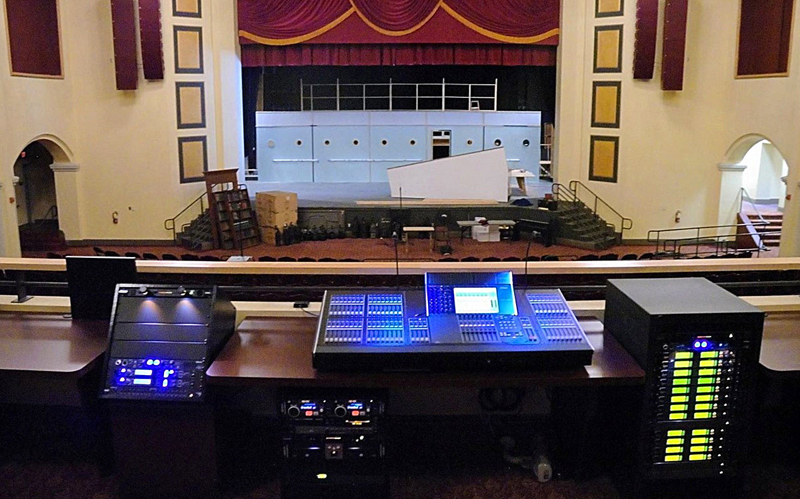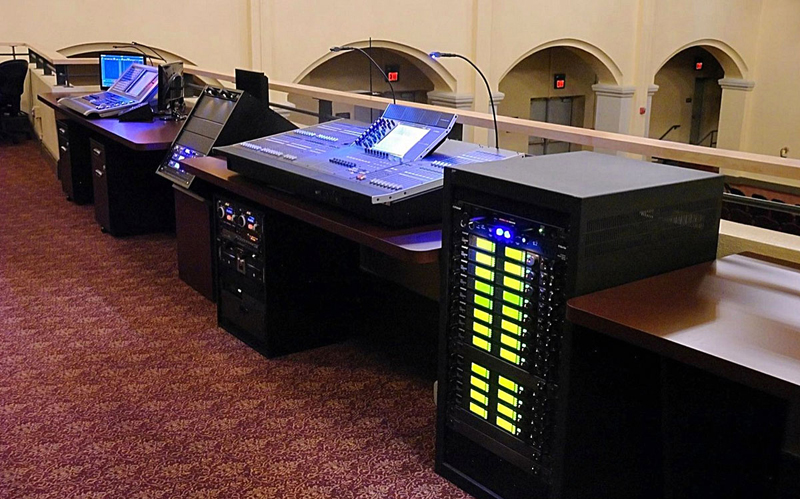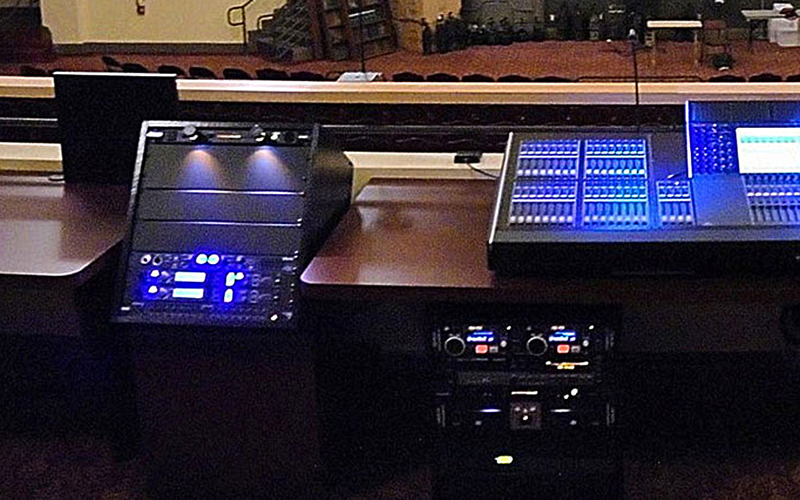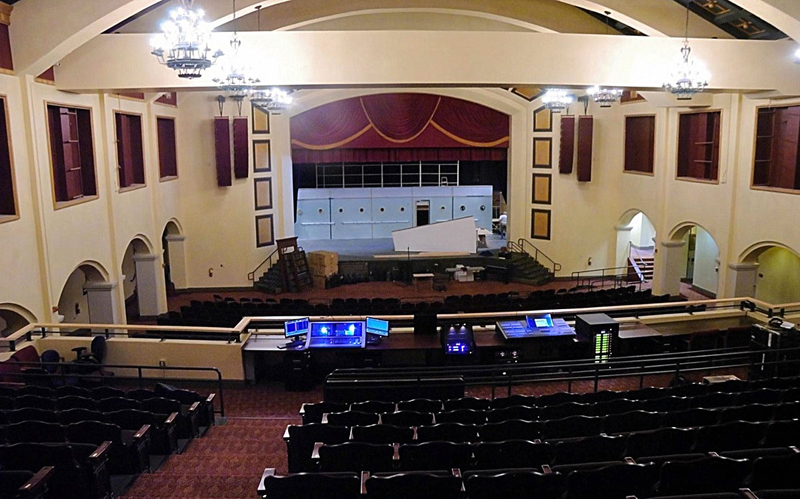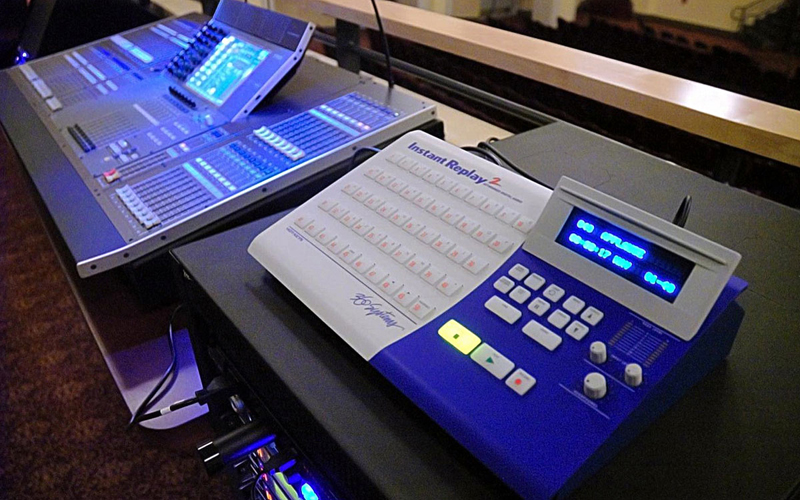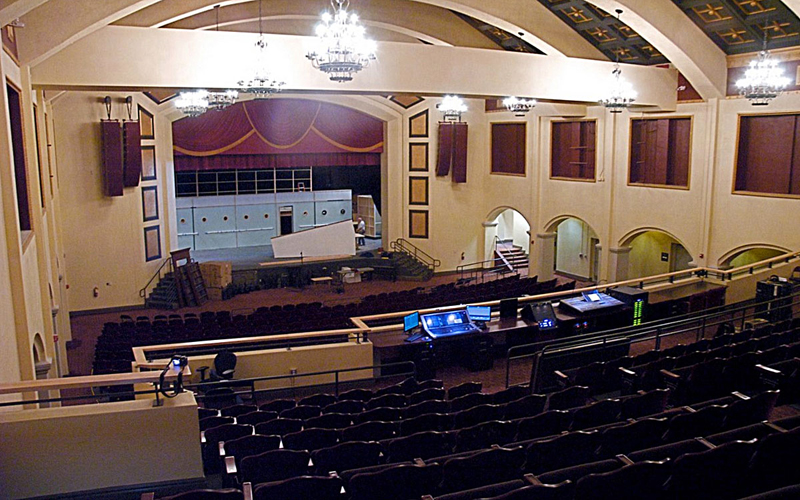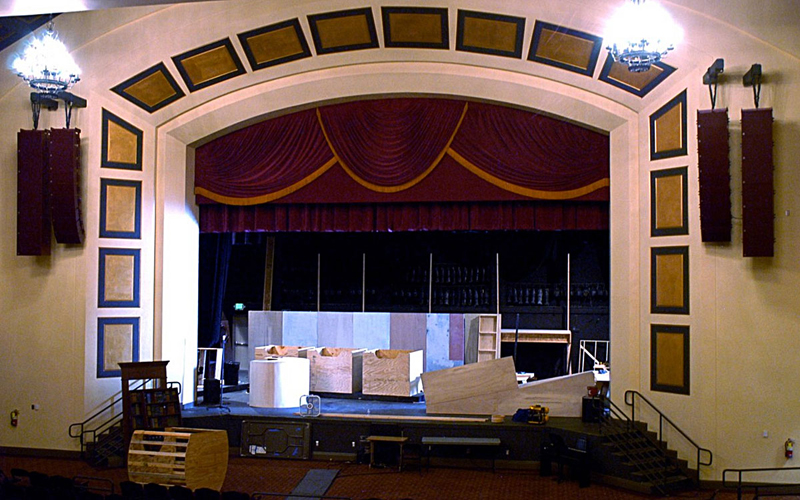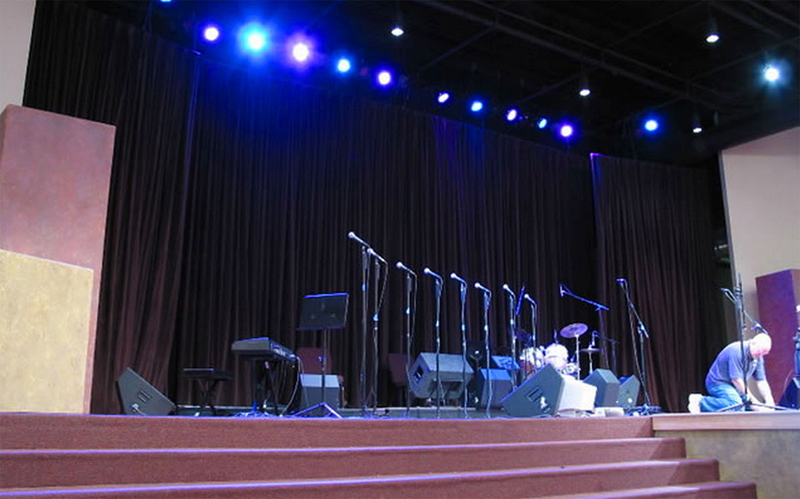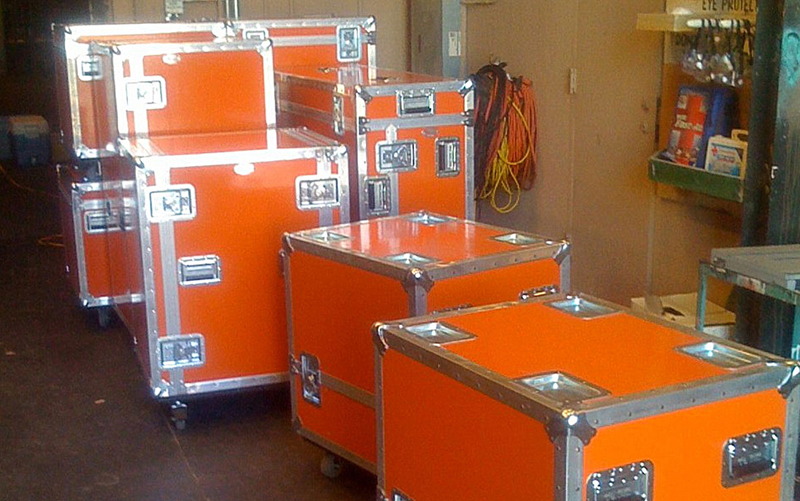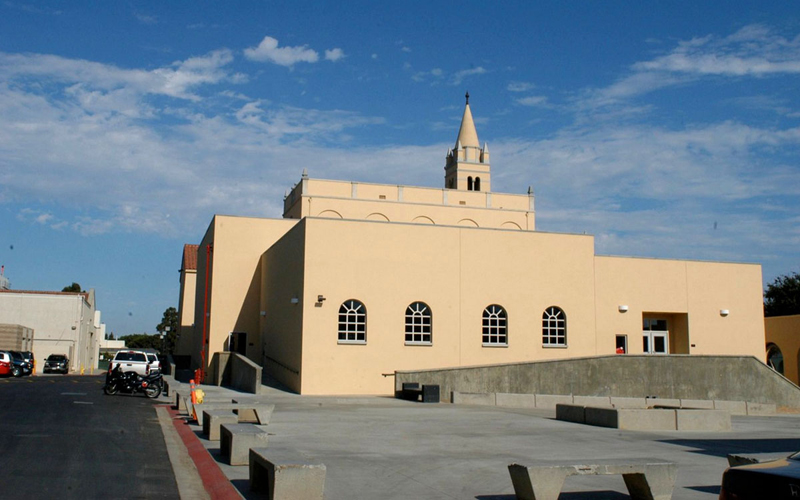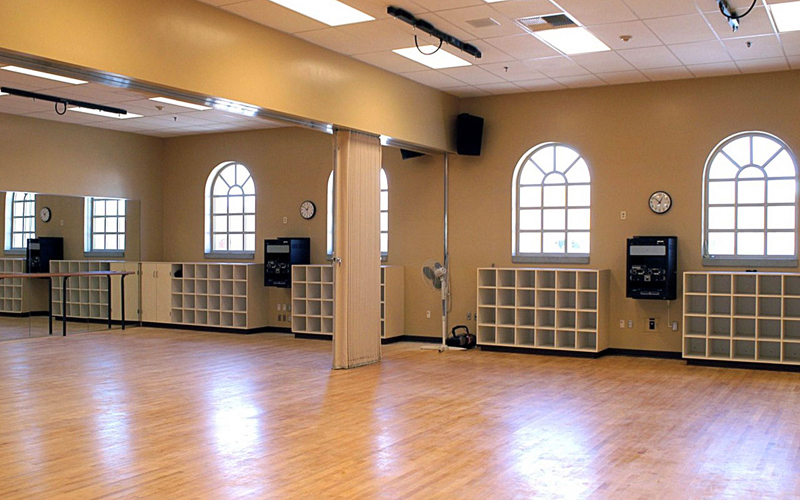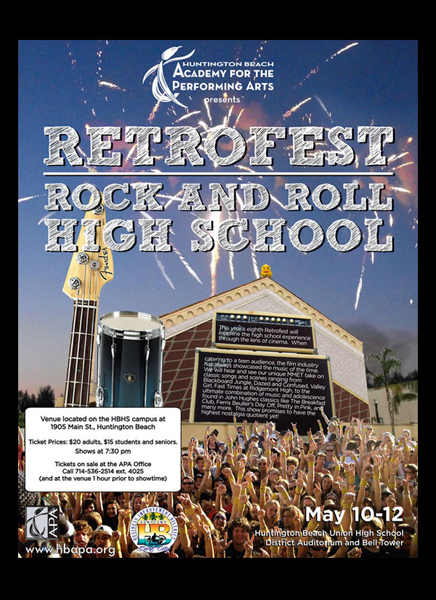Top of the Line Equipment for the Best and Brightest
When Huntington Beach High School began retrofitting its historical auditorium to meet the earthquake preparedness code, the district also secured funds to upgrade the audio/video equipment. The end result is a system that many of today’s top commercial artists might be pleased to see in a pro touring situation.
While the high-end gear might be considered over-kill for high school use, this isn’t just any high school. The school houses the Academy for the Performing Arts (APA) program. The best and the brightest within Orange County and beyond audition and aspire to be accepted, where they will learn to work with cutting-edge technology, both as technicians and performers.
One of the primary goals for placing the high-end equipment into the school was for the graduating APA students to be able to enter into a production level environment, and recognize the equipment they would be expected to use.
Yamaha M7CL48 Mixing Board
The Yamaha M7CL48 is a very solid mixing console.
Students who learn to mix on this board will have capabilities that are useful in a variety of venues. The console can be found at a variety of small to medium-sized churches, along with numerous installs at nightclubs.
Featuring 48 channels and 4 stereo channels (that are used as line-level inputs for things such as CD players, etc.), the unit is quite versatile, and a rock-solid performer. Only recently did a new version come out to replace this technology.
Throughout the year, the Apex Audio team will have selected students come down to their facilities to receive advanced, personal instruction on operating the mixing boards.
Shure Wireless Microphone System for the Performers
The system to the right is a Shure UR 4d dual channel receiver control array, controlling up to 24 Shure UR-series wireless microphones. Each of the sets of lights are 2 channel receivers.
This wireless microphone system is primarily used to control the sound coming from the actors within the Academy for the Performing Arts’ Theater, and Musical Theater programs.
At the time of installation, this system was the industry standard. The same technology you’d find powering a vast majority of the shows throughout the world. Still quality-wise one of the best systems around.
ClearCom Tempest Intercom System
Communication among the technical staff running a production (such as the tech director, sound engineer, stage manager, cameramen, etc.) is accomplished though the use of the ClearCom Tempest Intercom System. The system supports both hard-wired and wireless headsets.
If someone is working from a fixed position (stationary camera), the most cost-effective method to communicate is to plug his or her belt-pack through a physical wire into the closest audio wall outlet. If their position requires mobility, they’re going to use one of the 10 wireless belt-packs.
Managing Audio Output to the Audience & Audio Communication Among Tech Personnel
Getting up to 24 channels of Shure wireless microphones and 10 channels (each of the 10 channels are actually 2 channels – talk and listen) of the ClearCom Tempest intercom system to work together is extremely difficult. So it all had to be top-of-the-line gear that was properly coordinated.
The Shure system establishes a variety of unique frequency waves for each channel to transmit from. The ClearCom Tempest uses a new technology that skips frequencies constantly. So, several times a second, it changes the frequency it’s transmitting and receiving on so that if one of them steps on an active channel, it resolves itself almost instantaneously.
Instant Replay
Instant Replay allows you to load audio tracks (birds chirping, rain, thunderclap, etc.). You load sounds onto each of the 24 channels, and the audio samples are played back when clicked.
Adjusting the Line Arrays
When the speaker line arrays were initially installed, there was too much reflection of sound coming off of the walls. The subwoofers were determined to be too far forward, causing the high-end sound to reflect into the front rows of seating.
Hearing a refection of sound arriving a few milliseconds late causes your brain to lose the ability to articulate exactly what the vocalist is saying. In essence, you lose the “intelligibility” of the audio.
An important responsibility for Apex Audio is to not only excel at the physical installation of equipment, but to maximize the sound quality coming from the gear.
Custom Spanset
The hardware holding the arrays up in the air are called spanset. Normally, spanset is made of nylon (that can hold up to 60,000 pounds).
Since this was an installation going into a school, and not a portable production that comes back down at the end of the night, Apex Audio wanted to make sure the arrays would conform to fire safety protocol. Nylon, which would eventually burn during a fire would not be suitable, so the spanset that was ordered is made of 12 individual strands of braided metal wire. To further ensure they would hold during a high-level earthquake, special hardware was installed to secure the array from “jumping” and leading to a collapse.
The goal of the retrofit was to make this a “100 year” building, so it has to be safe!
Providing a Turnkey Solution
Apex Audio provided a complete turnkey solution for the Huntington Beach High School Auditorium installation. This meant that every component required to complete the audio/video system was identified, specified, purchased, installed, tested and backed by the Apex team. Items ranging from a variety of microphones (performance, wireless, orchestra, lavs, etc.) to mic stands, floor monitors, or even foam cutouts for storage cabinets were included in the package.
Since the grant for the auditorium renovation was a one-time event, it was very important that the equipment being purchased was robust, could take abuse, and wouldn’t have to be serviced regularly. So every piece of gear that was selected is designed to last for at least 10 years, and would be accepted on a “Tech Rider”.
Tech Rider definition: When a band goes on tour, its production company provides a list of the equipment they’d be willing to use to the sound company located in the region they’ll be performing. This ensures they’ll end up with the speakers, amps, mixer and mics they and their tech team need and want to use.
Being “Rider Friendly” means the equipment is manufactured to meet stringent guidelines that perform well at auditorium levels. They are from leading manufacturers who have a history of providing quality equipment.
Storage Cases
Lockable storage cases were purchased to make sure small, expensive pieces of equipment would be accounted for, and stored safely. Each of the storage units have drawers that can be pulled out with foam cutouts for various pieces of gear.
The foam cutouts act as a protective buffer, while helping to keep a visual inventory of the equipment.
Rear Section of the Auditorium
Audio service and systems were extended beyond the main auditorium to the tech/media room (far left with tile roof), “the black box” where smaller dance recitals are held, the dance studio (room with 4 windows) and dance classrooms (located along the right side of this picture).
Dance Room Systems
There are 3 seperate dance room areas within the auditorium. The dance room shown in the picture is able to be split into multiple configurations, or as one large room. Speakers in the dance studio are D&B E12’s – which provide very high fidelity and output.

